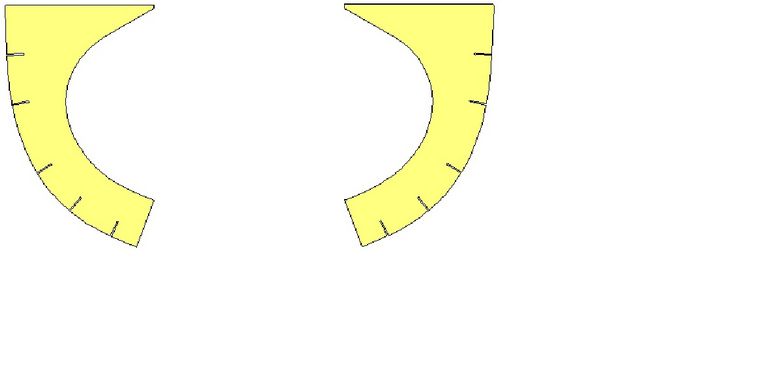MirrorPart is basically the same as SavePart except in this case, for every part saved, an additional mirrored image of the part will be saved as well.
Likewise, the user has to draw the part with AutoCAD before the MirrorPart command can be used.
The following will appear sequentially at the AutoCAD command prompt:
MirrorPart : Part Name <>: TEST1
Require to save holes in Part? (Y/N)<Y>:
Insertion Pt:
Select objects:
For example, the program will save the original part under the name "TEST1".
Subsequently the following prompts will appear:
Parts Name <>:
This is to prompt for the name of a new part. Part names are limited to 31 characters long (space and dot characters are not accepted).
File already exists. OK to overwrite? (Y/N): <N>
This prompt will be displayed if the entered part name already exists.
Require to save holes in Part? (Y/N) <Y>:
This will enable the SavePart command to save internal profiles of a part as holes, which may be used to nest other parts.
Insertion Pt:
This is the pick-up point of the part as well as the location for label or tag of the part. Insertion point is recommended to be one of the vertices of the part or lies within the geometry of the part. AutoCAD object-snap modes under the OSNAP command, such as Endp or Midp are allowed.
Select Objects:
All the Entity Select modes of AutoCAD are applicable here. You can type W (Window), C (Crossing), R (Remove) or simply pick the required entities to be saved as a part.
If W (Window) is entered at this stage, a dynamic window will be formed to enclose the relevant geometry of the part. All the entities within the window will be saved as an AutoNEST part.
Part Name <_MTEST1>:
By default, the mirror image is given the same name as the original part but pre-fixed with “_M”. The user has the option to rename it if required.
Example of a part saved by MirrorPart, one in its original orientation and the other its mirrored image:
